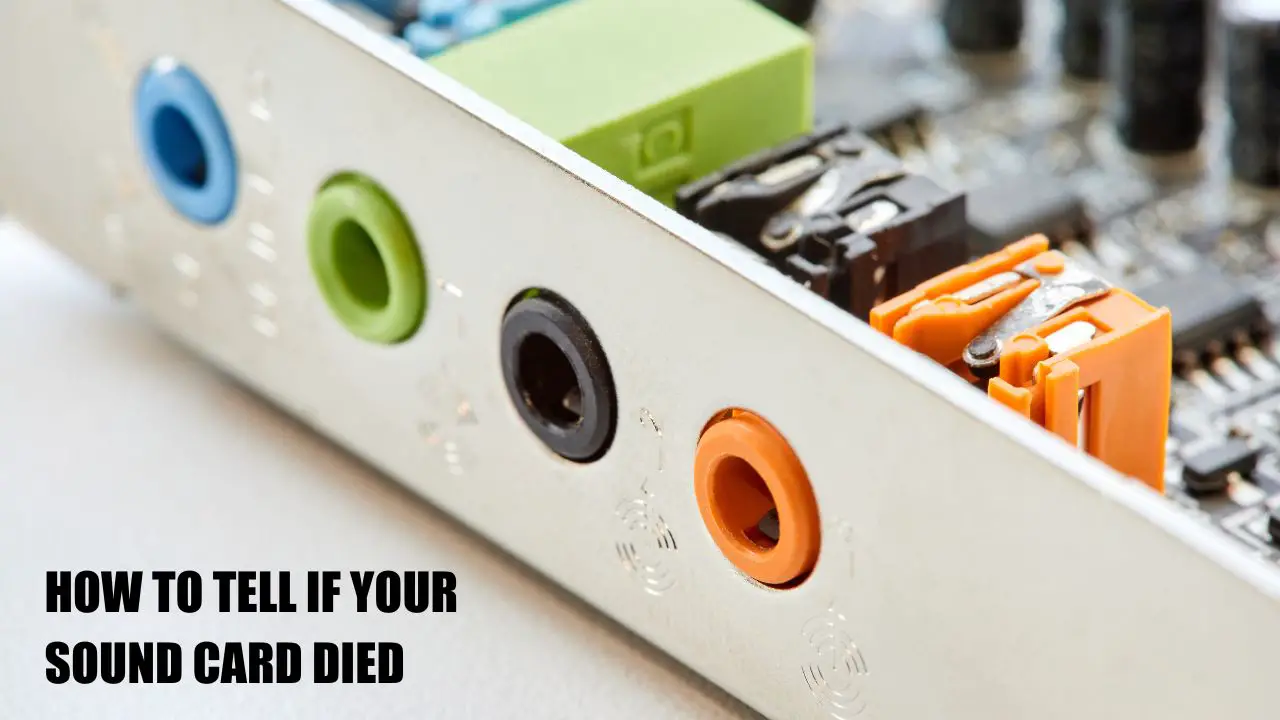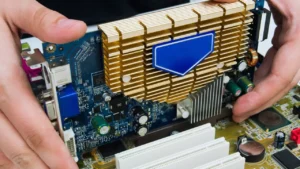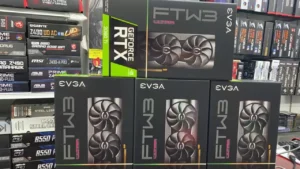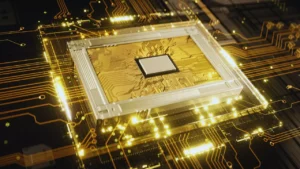Plug in headphones or speakers to your computer’s audio port. If there’s no sound, your sound card is likely dead.
Alternatively, inspect Device Manager, locate the sound card, and check for a yellow exclamation mark next to it.
You can double-click on your sound device and check the Audio Properties window.
Another option is to launch the Driver Talent application to perform a full scan on your computer.
If these steps do indicate a malfunctioning sound card, try reinstalling the driver.
With a little bit of troubleshooting, hopefully, you’ll have your audio up and running again in no time.
In case of a dead sound card, replace it to regain computer sound.
What are the common causes of sound card failure?
When experiencing sound problems on their computer, people often overlook the sound card as the source of the issue.
Sound card failure can be attributed to several common causes. oftentimes, a sound card issue can be traced back to problems with cables, driver software, or resource conflicts.
Sometimes, the sound card may be disabled or not installed properly, resulting in the device not showing up.
Additionally, an improperly installed microphone or incorrectly connected speakers may also lead to sound card failure.
Further, problems playing CDs or DVDs or crackling noises coming through headphones or speakers may indicate a sound card issue.
In some cases, the problem may be linked to the audio adapter, particularly with older or cheaper models that typically have lower audio quality.
What are the signs of a sound card failure, besides no sound?
In sound card malfunction scenarios, an absence of sound frequently indicates a problem. Nonetheless, other indicators should be observed.
Partial sound card issues, such as audio from specific speakers only or sporadic playback, can also signal a problem.
Additionally, minimal or nonexistent sound during playback can be revealing.
Occasionally, the sound icon may display solely the speaker symbol, devoid of emanating sound waves.
Although manipulating the volume slider might appear effective, it typically fails.
Alternatively, multiple sound cards in a system could alter their sequence and trigger complications during startup.
How can I troubleshoot and fix sound card issues on my own?
To troubleshoot and fix sound card issues, follow a few simple steps.
First, ensure that your volume settings are turned up.
If that doesn’t work, search for the sound card in the Device Manager and select the appropriate driver from the list.
Navigate to its Resource window and install the correct audio drivers from the manufacturer’s website if necessary.
Try reinstalling the device as well.
Most sound card problems are caused by cables that are not connected properly, defective cables, incorrect drivers, or resource conflicts.
However, with some patience and troubleshooting, you can get your sound card working correctly once again.
Do different types of sound cards have unique failure symptoms?
Yes, it is possible for sound cards to display varied failure symptoms.
For example, an overheating sound card can lead to distorted sounds, while a sound card with a faulty fan can result in no sound at all.
Some sound cards may have difficulties playing sound from the speakers, or experience low volume, while others may encounter microphone issues.
Nevertheless, irrespective of the type of sound card, troubleshooting steps like verifying drivers, cables, and hardware can often resolve the issue.
Ultimately, recognizing the distinct failure symptoms of different sound cards can simplify problem diagnosis and allow for effective resolution of your computer’s audio issues.
How often should I replace or upgrade my sound card to avoid failure?
Replacing or upgrading a sound card to prevent failure is not governed by strict rules.
Nevertheless, specialists advise that replacing hardware every 3 to 5 years will guarantee maximum efficiency.
Beyond the 5-year period, it may become increasingly difficult to obtain matching components, and an abrupt surge in crashes while loading or playing games might indicate a failing GPU.
Can sound card failure be prevented through routine maintenance?
It is possible to prevent sound card failure through routine maintenance, according to factual data.
By performing regular inspections and maintenance, gradual failure caused by wearing parts and components can be detected and addressed before they become a bigger problem.
This can help to prevent sudden and unexpected failures which could result in inconvenience and costly repairs.
Additionally, the use of integrated sound systems on motherboards can provide a more stable and reliable sound card solution.
By combining these methods, computer owners can ensure that their sound card remains in good operating condition for long-term use.
How can I diagnose and fix latency issues related to my sound card?
The first step is to check the playback settings on your device.
Go to the Playback tab in your audio device settings and make sure your sound card is selected as the default device.
If it’s not, select it and try playing the audio again.
If the issue persists, double-click on your primary audio device and navigate to the Advanced tab. Look for the buffer size, and try decreasing it to reduce latency.
You may also want to download the latest driver from your manufacturer’s website, as older drivers can sometimes cause latency issues.
Additionally, closing other programs using audio and disabling all unnecessary audio features can also help.
Can a malfunctioning sound card cause damage to other components?
It’s highly unlikely for a sound card to cause damage to other computer components, but a faulty sound card could create trouble with resource conflicts, installation, or drivers.
To prevent further issues, it’s important to address sound card problems quickly by troubleshooting and fixing them.








